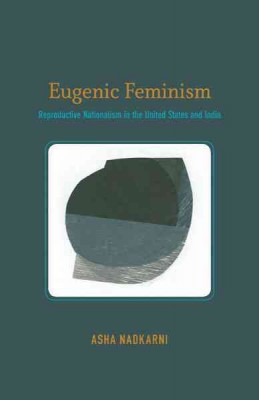| Eugenic Feminism: Reproductive Nationalism in the United States and India Contributor(s): Nadkarni, Asha (Author) |
|
 |
ISBN: 0816689938 ISBN-13: 9780816689934 Publisher: University of Minnesota Press OUR PRICE: $27.72 Product Type: Paperback - Other Formats Published: April 2014 |
| Additional Information |
| BISAC Categories: - Social Science | Feminism & Feminist Theory - Literary Criticism | Feminist - Social Science | Women's Studies |
| Dewey: 305.420 |
| LCCN: 2013028375 |
| Physical Information: 0.69" H x 5.6" W x 8.47" (0.84 lbs) 280 pages |
| Themes: - Sex & Gender - Feminine |
| Descriptions, Reviews, Etc. |
| Publisher Description:
Nadkarni reveals connections between U.S. and Indian nationalist feminisms from the late nineteenth century through the 1970s, demonstrating that both call for feminist citizenship centered on the reproductive body as the origin of the nation. She juxtaposes U.S. and Indian feminists (and antifeminists) in provocative and productive ways: Charlotte Perkins Gilman's utopian novels regard eugenic reproduction as a vital form of national production; Sarojini Naidu's political speeches and poetry posit liberated Indian women as active agents of a nationalist and feminist modernity predating that of the West; and Katherine Mayo's 1927 Mother India warns white U.S. women that Indian reproduction is a "world menace." In addition, Nadkarni traces the refashioning of the icon Mother India, first in Mehboob Khan's 1957 film Mother India and Kamala Markandaya's 1954 novel Nectar in a Sieve, and later in Indira Gandhi's self-fashioning as Mother India during the Emergency from 1975 to 1977. By uncovering an understudied history of feminist interactivity between the United States and India, Eugenic Feminism brings new depth both to our understanding of the complicated relationship between the two nations and to contemporary feminism. |